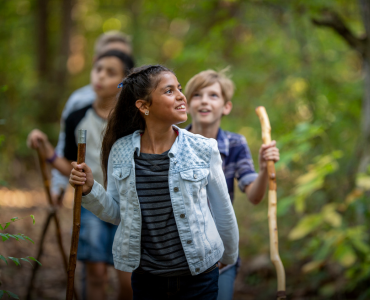
Children may have fears in life. Sometimes, they are shy to interact with others. It is normal to feel shy or nervous in new situations. But some children may feel intense fear or anxiety. Those feelings can get in the way of tasks. This is called social anxiety. Social anxiety is a mental disorder that typically starts between the ages of 8 and 15. It can affect a child’s ability to make new friends, learn, and build confidence.
This blog explains what social anxiety looks like in children. You will learn how to spot the signs and ways to help your child feel more comfortable in social settings.
What Is Social Anxiety?
The Mayo Clinic states that social anxiety is the fear of judgement in daily interactions. Children may feel that their actions could lead to embarrassment. They might avoid things out of fear of what others may think of them, including rejection. Children with this disorder may avoid parties, activities, and school.
Social anxiety can make children skip opportunities. It can also lead to physical symptoms, such as a fast heartbeat, sweating, or a stomachache.
Signs of Social Anxiety in Children
It can be difficult to tell if a child has social anxiety. A child could be naturally shy, or they may be dealing with social anxiety. According to the Mayo Clinic and the Child Mind Institute, children with social anxiety may:
- Avoid eye contact
- Worry a lot about what others think
- Refuse to go to school or social events
- Experience crying or tantrum spells
- Speak shakily or softly
- Start to sweat
- Avoid conversations or be really quiet
- Complain of stomachaches or headaches in social settings
Some kids may also experience anger or aggression. Feelings of embarrassment could make them feel overwhelmed and upset. They may rely on their parents to socialize. This can look like clinging to a parent during social situations.
What Causes Social Anxiety?
Social anxiety can come from family history or social experiences. It can be passed down from families. There may have been challenging environments that led to intense fears. Brain structure also plays a part. There is a structure in the brain called the amygdala. An overactive amygdala can cause more anxiety.
Children can also develop anxiety from their parents’ behaviors. Parents who are controlling or overprotective can raise a child’s fear. Children may have a different appearance or condition that draws attention. This attention can make them feel self-conscious.
How to Support a Child with Social Anxiety
Small steps in supporting a child’s anxiety can go a long way. There are many ways to help your child feel better about themselves in social situations. A support system of teachers, caregivers, doctors, and parents makes a big difference.
Here are some helpful tips:
- Talk openly: Validate your child’s feelings. Do not express judgement about their fears. Praise small efforts.
- Practice social skills: Role-play social situations. This gives children social practice in a safe space.
- Set realistic goals: Each child is different. It may take more or less time for them to practice social skills. Patience and support can create better outcomes. It can also soothe a child who feels overwhelmed.
- Avoid avoidance: Gently help your child face their fears. This helps them avoid the habit of avoiding social situations. Supporting your child through the process can help them step out of their comfort zone.
- Work with professionals: A doctor can help identify what is triggering your child’s anxiety. They can also assess any other conditions that may play a role. Therapy can teach coping skills. It can help a child verbalize their fears and slowly build confidence.
According to the Mayo Clinic, cognitive behavioral therapy (CBT) can be the most effective approach to social anxiety. It helps children manage their emotions by facing their fears. This type of therapy is gradual. It pushes children to slowly get used to uncomfortable situations. Medication may also be recommended by a doctor. Medication along with therapy can improve social anxiety.
Visit Clinicas
At Clinicas del Camino Real Inc., we care about your child’s mental health. We offer Mental Health Care Services to support your child’s emotional and social well-being. Our team is here to help uplift your child’s mood. We also provide guidance for parents and caregivers. Our support can help you assist your child in managing anxiety.
Your child does not have to struggle. You also do not have to struggle in caring for your child’s mental health. Call us today to schedule an appointment. Take the next steps in supporting your child’s mind for success and confidence in their future.

